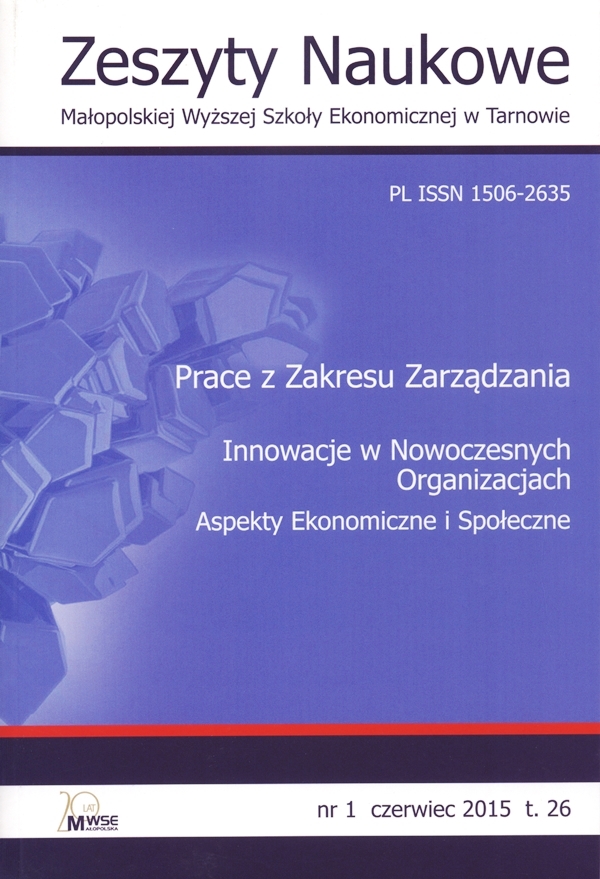Abstract
The first part of the paper briefly discusses the selected scientific achievements of Daniel Kahneman. Cognitive errors discovered by the laureate of 2002 Nobel Memorial Prize in Economic Sciences are analysed, as well as their importance that goes far beyond the domain of economy. Special attention is attached to possible applications of Kahneman’s ideas in modern cognitive didactics. The second part presents the specific research methods and results obtained by the group of researchers at the Pedagogical University of Cracow. In particular, the authors focus on the research, with the use of eye-tracker SMI 1250 HZ, on students’ eyes activity during solving problems. The article describes the results of studies on the high school students declaring interest in studying subjects and their intention to become scientists. It shows significant differences between the reaction of the eyes of examined students, measured by the time of looking at the distribution of possible distractors in the eye tracking record, and their final answers. The differences in strategies of problem solving undertaken by the groups of beginners (first year students) and experts (PhD students) are also discussed.
References
Bargh, J.A. (2014). Próbując zrozumieć, jak działa nasz umysł. Świat Nauki, 2(270).
View in Google Scholar
Blasiak, W., Godlewska, M., Rosiek, R., Wcislo, D. (2012). Spectrum of physics comprehension. European Journal of Physics, 33, 565–571.
View in Google Scholar
Błasiak, W. (1996). Marzenia o teorii nauczania. Kraków: Oficyna Wydawnicza Impuls. ISBN 83-85543-98-8.
View in Google Scholar
Błasiak, W. (2011). Rozważania o nauczaniu przyrody. Kraków: Wydawnictwo Naukowe Uniwersytetu Pedagogicznego. ISBN 978-83-72-71-756-9.
View in Google Scholar
Błasiak, W., Godlewska, M., Rosiek, R., Wcisło, D. (2013). Nowe technologie w badaniach edukacyjnych. W: J. Morbitzer (red.). Człowiek, media, edukacja. Kraków: Uniwersytet Pedagogiczny. ISBN 978-83-7271-832-7.
View in Google Scholar
Feynman, R., Leighton, R., Sands, M. (1971). Feynmana wykłady z fizyki. T. 1, cz. 1. Warszawa: Państwowe Wydawnictwo Naukowe.
View in Google Scholar
Kahneman, D. (2012). Pułapki myślenia. O myśleniu szybkim i wolnym. Poznań: Media Rodzina. ISBN 978-83-7278-677-7.
View in Google Scholar
Kahneman, D., Tversky, A. (1979). Prospect theory: An analysis of decisions under risk. Econometrica, 47, 313‒327.
View in Google Scholar
Madsen, A., Larson, A., Loschky, L., Rebello, S. (2012). Differences in visual attention between those who correctly and incorrectly answer physics problems. Physical Review Special Topics. Physics Education Research, 8, 1‒13.
View in Google Scholar
Sjøberg, S., Schreiner, C. (2007). Young learners’ attitudes and interest: Results and perspectives from the project ROSE (The Relevance of Science Education). International Newsletter on Physics Education, October, 3‒5.
View in Google Scholar
Sosnowski, T. (2002). Zadania umysłowe a aktywność sercowo-naczyniowa. Warszawa: Gdańskie Wydawnictwo Psychologiczne. ISBN 83-89120-01-1.
View in Google Scholar
Zając, M. (2003). Optyka okularowa. Wrocław: Dolnośląskie Wydawnictwo Edukacyjne. ISBN 8371251025.
View in Google Scholar
Żylińska, M. (2013). Neurodydaktyka. Toruń: Wydawnictwo Naukowe Mikołaja Kopernika. ISBN 978-83-231-3092-5.
View in Google Scholar
© Copyright by Małopolska School of Economics in Tarnów. The articles are available under the Creative Commons Attribution NonCommercial-NoDerivatives 4.0 International License


